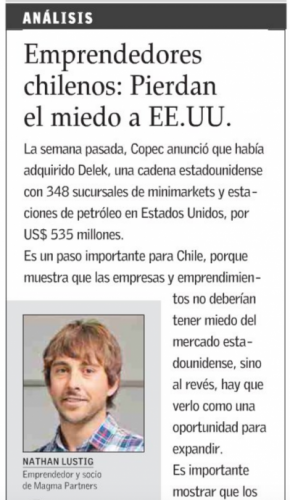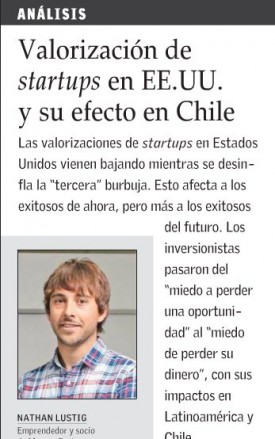Note: A version of this post appeared as a column in Spanish in Chile’s El Mercurio with the title Emprendedores chilenos: Pierdan el miedo a EE.UU. Although this post focuses on Chilean entrepreneurs, it can also apply to other Latin American entrepreneurs. From what I’ve seen, Mexican entrepreneurs are the least scared of the US market, followed by Argentinians, Colombians, then Chileans, who generally think they don’t have much of a shot at competing in the US. This mindset is slowly changing and this article’s goal is to push it along faster.
A few weeks ago, COPEC, a Chilean convenience store and gasoline service station chain, acquired Delek, a US convenience store and gas station chain with 348 US locations for $535MM. COPEC has operations in Mexico, Colombia, Peru, Ecuador and Panama, but this is their first foray into the US market. It’s an important step for Chile because it shows that both big companies and startups alike shouldn’t be scared of the US market. In fact, they should view the US market as a big opportunity to expand outside of their home markets.
For way too long, when Chilean companies large and small have wanted to expand out of Chile, they’d look at Peru, Colombia and maybe Mexico. But we’re recently seeing a big change, both by startups and by big companies like COPEC.
(more…)



